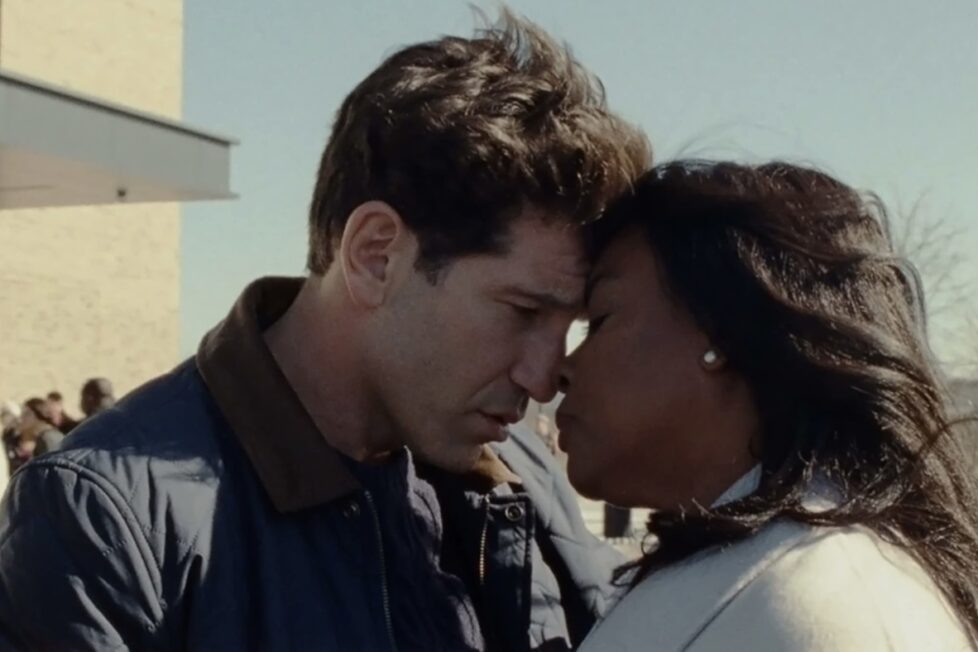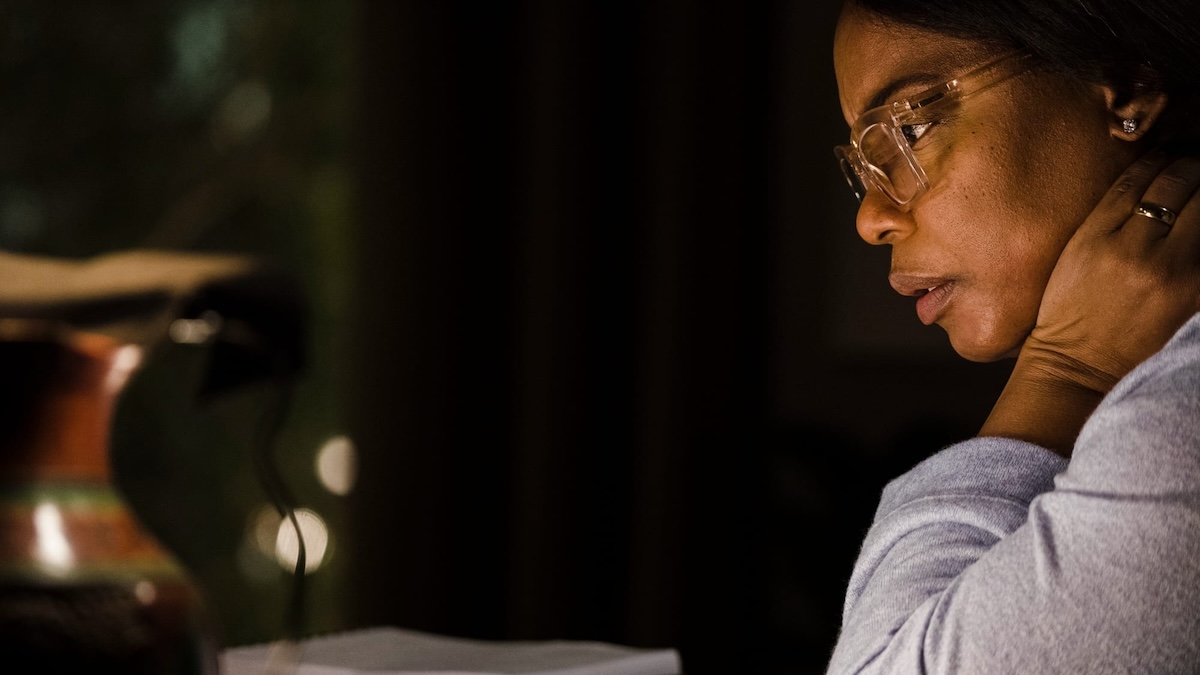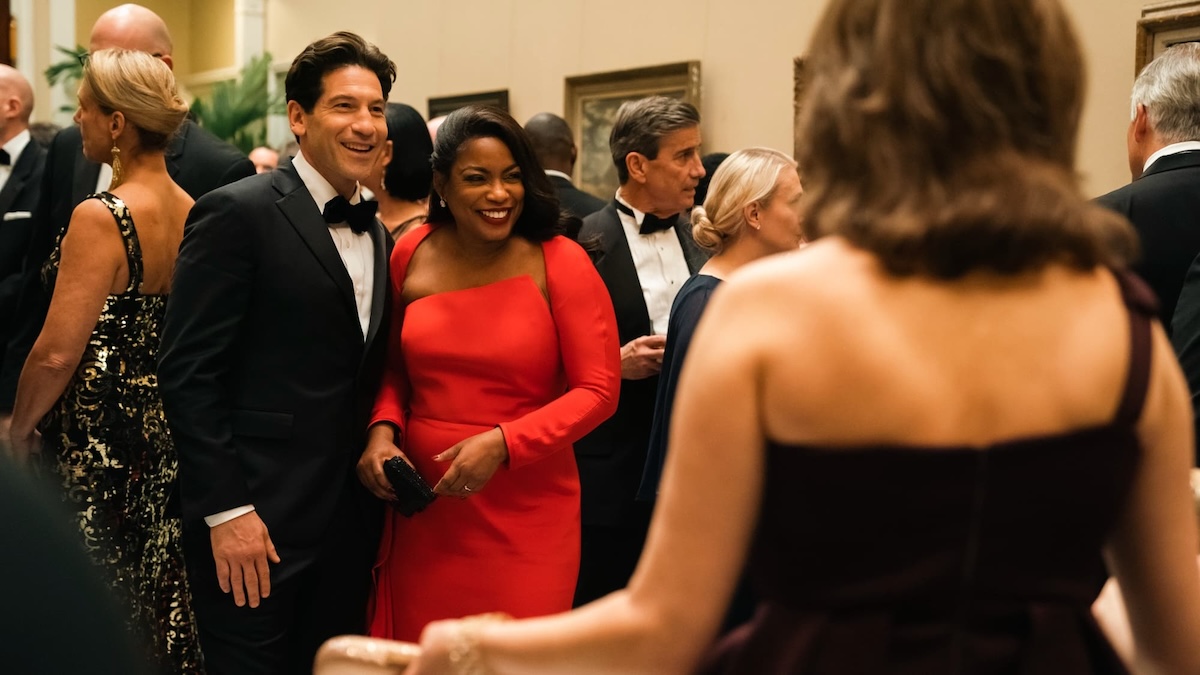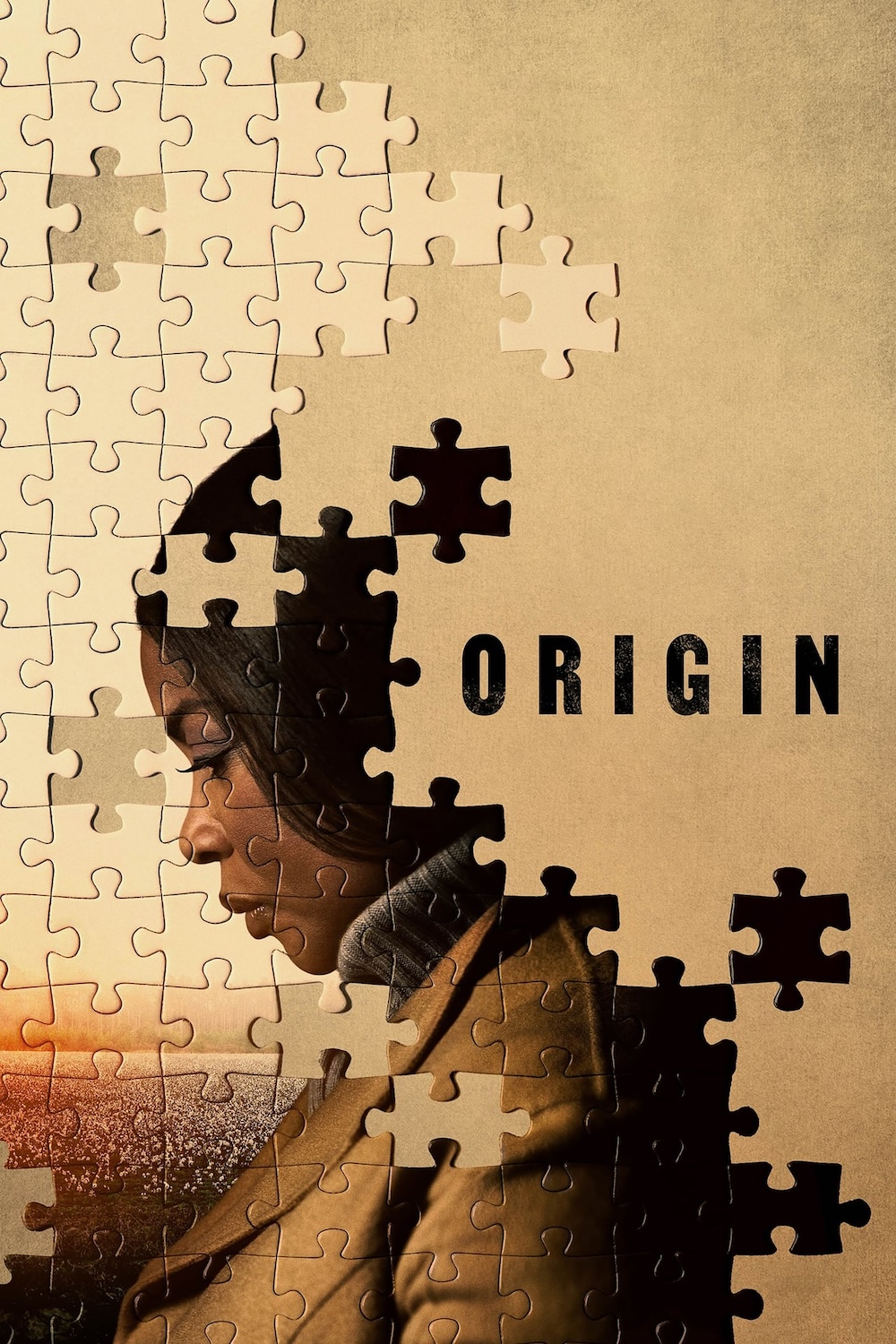ORIGIN (2023)
The unspoken system that has shaped America and chronicles how lives today are defined by a hierarchy of human divisions.

The unspoken system that has shaped America and chronicles how lives today are defined by a hierarchy of human divisions.


Netflix’s decision to drop the film adaptation of Isabel Wilkerson’s 2020 book Caste: The Origins of Our Discontents, a work examining the pervasive caste system shaping and oppressing societies throughout history, prompted Academy Award-nominated director Ava DuVernay to independently finance the film through grants and foundations. Titled Origin, the film serves as a testament to the power of diverse funding sources in film production, showcasing an alternative to the dominance of big studio productions. However, despite its noble origins, Origin ultimately falls short as a misguided and confusing attempt to adapt a non-fiction text into a cinematic format. The resulting film is occasionally tasteless and, overall, poorly executed.
DuVernay makes her first return to the big screen since A Wrinkle in Time (2018), writing and directing this adaptation of Wilkerson’s nonfiction work. Rather than a straightforward adaptation, Origin centres on Wilkerson herself (played by Aunjanue Ellis-Taylor). The film navigates both a personal tragedy in Wilkerson’s life and her research for the thesis that would become her landmark book, Caste. Fresh off a Pulitzer Prize win for her first book, 2010’s The Warmth of Other Suns: The Epic Story of America’s Great Migration, Wilkerson is approached by a colleague with the opportunity to write about the murder of 17-year-old African American Trayvon Martin (Myles Frost), fatally shot by a Hispanic man.

Origin opens with a recreation of this event, a graphic depiction set against the backdrop of the event’s tragic police tapes. However, this explicit portrayal brings unnecessary pain to the forefront of the narrative, resulting in a film that, at best, feels manipulative and, at worst, tasteless. As Leila Latif points out in IndieWire, “DuVernay buys into the same biases that Black children face, casting an actor in his mid-twenties and robbing the moment of one of its key depravities: that this was an armed adult murdering a child.” By evoking Martin’s tragic story to elicit a strong emotional response, Origin ultimately undercuts his life and fails to achieve its desired impact.
Navigating her mother Ruby’s (Emily Yancy) failing health and researching the murder of Martin, Wilkerson becomes drawn to the idea that racism, alone, fails to fully explain this form of bigotry. She instead believes it aligns more with a wider caste system that has plagued and continues to shape societies throughout history, including Nazi Germany and modern-day India. This conviction leads her on a journey of intense research, engaging in debates with friends in Germany, learning from Dalit scholars in India, and even challenging her own family’s perspectives on racism and caste. One of the film’s most powerful scenes features Isabel engaging in a lengthy conversation with her cousin, Marion (Niecy Nash), about her thesis at a cookout. Isabel patiently answers Marion’s questions and shares her research to persuade her of her ideas. While the script occasionally dips into clichéd dialogues (Marion’s sarcastic “In English please?” is a prime example, mirroring an all-too-common trope in modern cinema), these in-depth conversations ultimately shine a light on the personal impact of these societal systems.
Origin’s script clashes directly with the film’s core thesis. Though DuVernay aims to depict historical and personal trauma’s lasting impact through love and loss, the characters lack the depth necessary to generate this emotional weight.
Wilkerson’s husband, Brett (Jon Bernthal), appears too flawless: his actions and dialogue fail to capture the complexities of their relationship beyond moments of optimism. While Niecy Nash delivers comedic brilliance, Marion’s dialogue often resorts to cliches. Though Aunjanue Ellis-Taylor shines in intimate scenes with other characters, the audience never glimpses Wilkerson outside her academic and familial roles. The only attempt to portray her as a relatable, well-rounded person is the recurring gag of losing her car keys.

What shines through in Origin are the small moments: Wilkerson’s interactions with other characters, like the vehement argument with her German friend (Connie Nielsen) about her flawed thesis, or the brief conversation about parents with the “Make America Great Again” hat-wearing plumber (Nick Offerman). While these conversations can sometimes feel overly academic or directly lifted from Wilkerson’s book, they nonetheless convey a genuine attempt to explore the intricate aspects of this narrative’s core concerns. However, Origin devotes so little time to these moments, rapidly navigating her journalistic journey, that the intended meaning of these interactions remains unclear.
Interwoven with passages from Wilkerson’s book, Origin transports audiences back in time to witness real-life examples of these entrenched hierarchies. It unfolds through a tragic love story between a sympathetic German (Finn Wittrock) and a Jewish woman (Victoria Pedretti) during the horrors of Nazi Germany. We glimpse the chilling truth as Nazi leaders, behind closed doors, discuss dehumanising Jewish people, drawing inspiration from America’s Jim Crow laws. In the Deep South, a Black couple (Isha Blaaker, Jasmine Cephas Jones) grapples with the pervasiveness of racial prejudice. We also witness the heartbreaking story of a young boy, celebrating a baseball victory with his team, only to be cruelly denied access to a swimming pool due to the colour of his skin. Each segment, presented with poignant clarity, could stand alone as a powerful short film, echoing the central themes of Origin. However, by attempting to interweave these narratives, the film struggles to maintain a cohesive thread, ultimately losing the thread along the way.
As the film races towards its conclusion, the inappropriately sentimental soundtrack clashes with the escalating tension. It strives to reach the novel’s core argument: that eight pillars of caste weave together these various instances of dehumanisation and oppression. Through fleeting glimpses into different moments, it ambitiously attempts to propose solutions to dismantle these entrenched systems. However, the film ultimately prioritises the message of individual accountability, neglecting the profound questions of systemic injustice that lie at the root of these problems.

While showcasing these moments in their grotesque clarity has merit, especially for those who might not encounter or consider these systemic failures, Origin falters by offering no solutions. While it serves as a powerful dissection of these issues, the film ultimately may be little more than that. The final screen notes highlight how Caste rose to the top of The New York Times Bestseller list during the tumultuous year of its release in 2020, amidst the Black Lives Matter protests following the murder of George Floyd and the presidential election. These final moments, while emphasising Wilkerson’s incredible work, undermine any claim that the film effectively preaches the thesis of her book.
Huffington Post’s Candice Frederick wrote, “Perhaps a documentary where these ideas could truly breathe would have been more effective.” While I appreciate the attempt for a less traditional narrative approach, a departure from the typical three-act structure, I ultimately find myself agreeing with Frederick. Origin leaves me thinking that these ideas are better communicated through a nonfiction lens. Even if a few viewers leave the cinema enlightened, the film ultimately collapses by the end due to its poorly crafted metaphor, failing to deliver on the promise of its hopeful outlook.
Ava DuVernay, as evidenced by her documentary 13th (2016) and the narrative-driven films Selma (2014) and When They See Us (2019), demonstrates a remarkable ability to dissect US history. In Origin, she attempts to fuse these mediums into a film that celebrates the work of Isabel Wilkerson. However, while the film successfully pays homage, it falls short in offering its own insightful analysis of solutions to the profound systemic issues at hand.
USA | 2023 | 141 MINUTES | 1.85:1 | COLOUR | ENGLISH


director: Ava DuVernay.
writer: Ava DuVernay (based on ‘Caste: The Origins of Our Discontents’ by Isabel Wilkerson).
starring: Aunjanue Ellis-Taylor, Jon Bernthal, Vera Farmiga, Audra McDonald, Niecy Nash-Betts, Nick Offerman & Blair Underwood.
